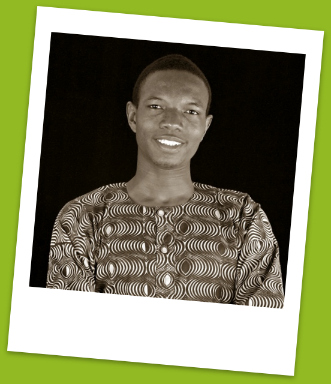“Creating a platform of empowerment”
October 11 Nigeria’s new graduates and those idled by the global economic downturn are flooding the labour market in search of scarce opportunities, writes Ayodeji Morakinyo, 25, a Commonwealth Correspondent from Nigeria. However, some government leaders and many NGOs are combining efforts to reduce the rate of unemployment.
Nigeria’s new graduates and those idled by the global economic downturn are flooding the labour market in search of scarce opportunities, writes Ayodeji Morakinyo, 25, a Commonwealth Correspondent from Nigeria. However, some government leaders and many NGOs are combining efforts to reduce the rate of unemployment.
Unemployment issues have grown severe as the global economic recession that began in the last decade endures. Around the world there are discussions on how to mitigate the problem, but many countries still struggle to reduce the number of people idled by economic forces. Nigeria, the most populous country in Africa, is not exempt from this lot.
Hundreds of thousands of Nigerians are either unemployed or employed in a job that is below their academic qualification. In addition, thousands more freshly graduate from tertiary institutions each year. They flood the labour market in search of the few available opportunities, and may become vulnerable to negative vices in the face of persistent idleness.
However, some government leaders and many non-governmental organisations are combining efforts to reduce the rate of unemployment in Nigerian society. Perhaps the intervention of such timely initiatives will help cushion the effects of unemployment and population explosion in the next decade.
One such initiative is the Lagos Ignite Project, a collaborative effort between the Lagos State government and the Afterschool Graduate Development Centre (AGDC). While the project is usually co-sponsored by various corporate organisations, the Lagos State government remains its highest sponsor. Every year, AGDC assembles thousands of Nigerian youth at a Youth Stakeholders’ Forum to discuss and proffer realistic solutions to issues affecting them. The overall aim of the meeting is to create a platform of empowerment for the future leaders of Nigeria and the young stakeholders of Lagos State.
Apart from the thought-provoking lectures and self-help texts offered at the forum, Nigerian youth get an opportunity to exchange information with the Executive Governor of Lagos State, Mr Babatunde Raji Fashola.
During the question and answer session Governor Fashola decried the indiscriminate importation of the Keke Marwa motorized tricycles and Okada motorcycles that are mainstays of public transportation in Nigeria, saying, “There is no legacy we can leave from it.”
He suggested the resurrection of the railway system as a means of interstate transportation of goods, and encouraged the use of our mother tongue and the projection of our local dialect into foreign cultures.
The primary promoters of the Afterschool Graduate Development Centre, Mrs Detoun Ogwo, Mrs Ibukun Awosika and Mrs Funmi Adeyemi, also attended the event. Mrs Awosika presented the latest graduates of the AGDC programme to the audience and encouraged more youths to enrol for one of their highly competitive courses.
“We will always fulfil the promises we commit ourselves to,” Mrs Awosika said, assuring prospective students that the programme is made absolutely tuition-free courtesy of various sponsors.
In closing the event, another AGDC promoter, Mrs Adeyemi, charged participants of the AGDC programme to “be the light in the midst of darkness.”
…………………………………………………………………………………………………………………
About me:
I am an animated and artistic writer hailing from the southwest region of Nigeria. I hold a degree in electronics and electrical engineering and am certified as an IT professional.
On days when I am not busy with engineering and management activities, I write prose poems, short stories and journalistic commentaries. In the coming years, I hope to help other people’s lives around the world and aid in the reformation of Africa.
…………………………………………………………………………………………………………………
Opinions expressed in this article are those of the author and do not necessarily represent the views of the Commonwealth Youth Programme. Articles are published in a spirit of dialogue, respect and understanding. If you disagree, why not submit a response?
To learn more about becoming a Commonwealth Correspondent please visit: http://www.yourcommonwealth.org/submit-articles/commonwealthcorrespondents/
…………………………………………………………………………………………………………………



